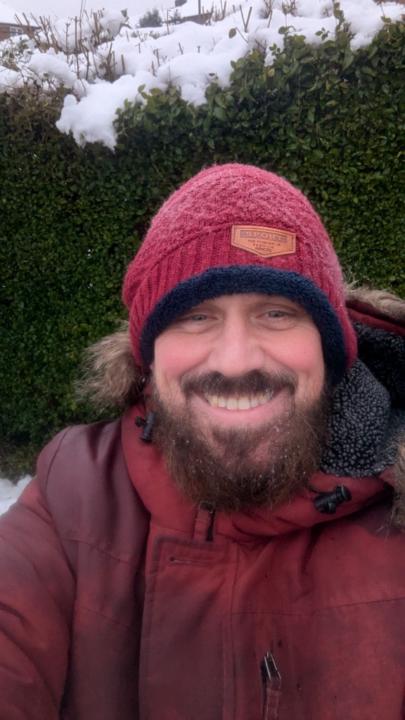Activity
Mon
Wed
Fri
Sun
Nov
Dec
Jan
Feb
Mar
Apr
May
Jun
Jul
Aug
Sep
What is this?
Less
More
Memberships
The Grim Circle
1k members • $39/m
Modern Masculinity
99 members • $30/m
5 contributions to Modern Masculinity
🔥 The Brotherhood Circle – Enter If You Dare 🔥
(First Call Monday 10th March 6pm AEST) This is not just another online group.This is a sacred space for men ready to step into their power, sharpen their edge, and commit to mastery. This is a fortnightly online gathering for men who refuse to stay the same. If you’re here, it means something inside you knows you're built for more. 👊 This is where men are forged.👊 This is where we confront our truth.👊 This is where weakness is exposed, and strength is built. If you’re ready, read on. If not, this isn’t for you. 🛠️ What This Brotherhood Circle Is About - Truth Over Comfort – We do not cater to egos. We speak truth. - Accountability Over Excuses – No blaming, no complaining, no victimhood. - Growth Over Stagnation – Every man who steps into this space will be tested and challenged. This is a structured, results-driven space where men gather to learn, share, challenge, and grow. ⚡ The Brotherhood Rules (Read Before You Join) 1️⃣ Radical Honesty No sugarcoating. No fake humility. Speak your truth, and expect to hear the truth. 2️⃣ Full Presence When you're here, you're HERE. No distractions. No multi-tasking. No half-heartedness. 3️⃣ Commitment & Follow-Through If you say you're going to do something, you do it.Excuses are for men who refuse to lead. 4️⃣ No Weakness Masking as Strength Bravado, arrogance, and ego are not strength. Real strength is in facing your truth, not hiding behind an image. 5️⃣ Brotherhood Before Isolation The lone wolf dies, but the strongest men stand in brotherhood.That means supporting each other while also calling out weakness. 6️⃣ Own Your Growth No one is coming to save you. You are responsible for your mindset, actions, and results. 7️⃣ What Is Spoken Here, Stays Here This is a confidential space for men to speak openly, free of judgment.Break this rule, and you're out. No second chances. 8️⃣ Use ‘I’ Statements Speak for yourself. No generalisations. No hiding behind "we" or "you."Say “I feel…” “I struggle with…” “I commit to…”Own your words. Own your story. Own your life.
Reclaiming Brotherhood, Family and Purpose
I believe men have lost their way. Not just as individuals, but as a collective. For thousands of years, we knew what it meant to be a man. We learned it through trials, through initiation, through the guidance of those who came before us. But today? That knowledge is gone. The rites of passage that turned boys into men have disappeared. The communities that raised strong, capable, purpose-driven men have crumbled. And in their place, we’ve been left with a society that keeps us weak, isolated, and distracted from what actually matters. This is something I’ve reflected on deeply. It’s not just about what I’ve read in books or studied from history. It’s my own lived experience. I grew up trying to figure out what it meant to be a man, but no one handed me the roadmap. No one gave me the initiation. Like most men today, I had to stumble through it on my own. And I refuse to let that happen to the next generation. For most of history, young men didn’t enter adulthood without being tested. Indigenous cultures all over the world had rites of passage designed to strip a boy of his childish ways and force him to step into responsibility. Aboriginal tribes had walkabouts, sending young men into the wilderness alone to survive. The Spartans had the agoge, where boys were pushed to their limits physically, mentally and emotionally. The Māori had warrior traditions that embedded discipline, respect and purpose into the hearts of their young men. These weren’t just random challenges. They were designed to show a man who he truly was and prepare him for a life of leadership and service. But we don’t do this anymore. Boys don’t become men. They just grow older. We often talk about masculinity as if it’s been the same forever, but the truth is, the modern world has completely reshaped what it means to be a man. For most of history, men weren’t absent from the home. They worked with their hands, passed down knowledge to their sons, and played an active role in raising their children. But when the Industrial Revolution came along, men were pulled out of their homes and into factories. Suddenly, the father figure wasn’t a mentor, teacher, or protector anymore—he was just a provider who was gone most of the time.
Greetings
Greetings to all My name is Shane , I am 53 and hail from the UK. I am married with two children. Like most of you guys I'm here for self improvement and to meet like minded folk in the same situation as myself. Look forward to meeting you and enjoying this journey we are about to embark on Cheers Shane
MEN WERE BUILT FOR MORE - BUT WE GOT ROBBED
For thousands of years, masculinity was forged in the fire of mentorship, brotherhood, and purpose. Young men stood beside their fathers, learned from elders, and earned their place in the tribe through discipline and real-world experience. Strength wasn’t just muscle. It was responsibility. It was wisdom. It was knowing your place and owning it. Then came the Industrial Revolution and it ripped men from their roots. Factories replaced fathers. Machines replaced meaning. The bond between men shattered. Boys grew up without guidance, thrown into a system that valued obedience over leadership, production over purpose, survival over strength. And what did we get? ❌ Men cut off from their emotions, taught that feeling anything makes them weak ❌ Broken families and fatherless generations repeating the same cycles ❌ A lost brotherhood, where men compete instead of rise together This isn’t just history. It’s the reason men today feel lost, disconnected, and stripped of their power. But here’s the reality, you don’t have to be part of this system. You can take back what was stolen. Build your tribe. Find your fire. Redefine masculinity on your terms. Stop waiting. Stop numbing yourself. Step up. Men were built for more. 🔥 Drop a comment—what’s the hardest part of being a man today?
1 like • Feb 14
@Jack McGregor first thing begins with your own families , finding a partner who values the traditional roles of the man and woman. Then you raise your children together in that environment. You take all the bullshit that the modern world throws at you and you ignore it and live by the standards you set for yourselves. I'll give you a simple example , I don't allow my children to have smart phones and I encourage them to read and be outdoors as much as possible. My wife is a stay at home mum and we home school too. It's in my view that the education System is being used as an indoctrination tool to push the globalist agenda. My girls learn the value of being part of a strong and loving family unit. It's tough at times because we are a single income family so we don't have as much disposable income as alot of families , but we are there and we are engaged with our kids and mum and dad aren't constantly working and the kids aren't in school for nearly ten hours a day. The thought of the state raising my children makes my blood run cold but that's where we are at , the government year by year wants to diminish the role of the parent. Here in the UK you don't even have the right to take your children out of school for a holiday. The next is to tribe up , find your people. Others that are doing the same or at least similar things to you and build support networks ( like we have here ) and begin sharing resources. In my view we will see a massive shift in how our societies function and we will see more and more people moving into Van life or setting up communities and living in almost parallel homogenous societies. The alternative of digital currency , only fans and fifteen minutes cities complete with pod housing is just so against human nature. And it's all slowly coming into volition. It's like watching a huge game of chess and seeing the pieces coming into play. Disengage , build your families gather your community and lead a more fulfilling life
I need your help
Brothers, this isn’t just my community. It is OUR community. This space is here to push, challenge, and support you, but I want to make sure it is delivering exactly what you need. What would make this more valuable for you? What topics, resources, or discussions would help you the most? Drop your thoughts and let’s build this together.
1-5 of 5
@shane-hennah-7311
Dad , Husband and Navy veteran. Patriot. The eternal optimist..
Active 9d ago
Joined Feb 7, 2025
UK


